The past few weeks have seen crisis upon crisis hit the Taiwan People’s Party (TPP), raising questions about the party’s future viability. It is also a wild, unpredictable story that is fascinating in a train wreck sort of way.
Much of it has not been covered, or only briefly covered, in the English language press. Indeed, so much has happened that my previous column (“Donovan’s Deep Dives: The TPP careening towards catastrophe”) was almost entirely about the period of Aug. 8 through Aug. 12.
The first big piece of bad news goes back to July 26, when Hsinchu Mayor Ann Kao (高虹安) of the TPP was convicted on corruption charges and sentenced to seven years and four months in prison and suspended as Hsinchu mayor. She left the TPP in disgrace.
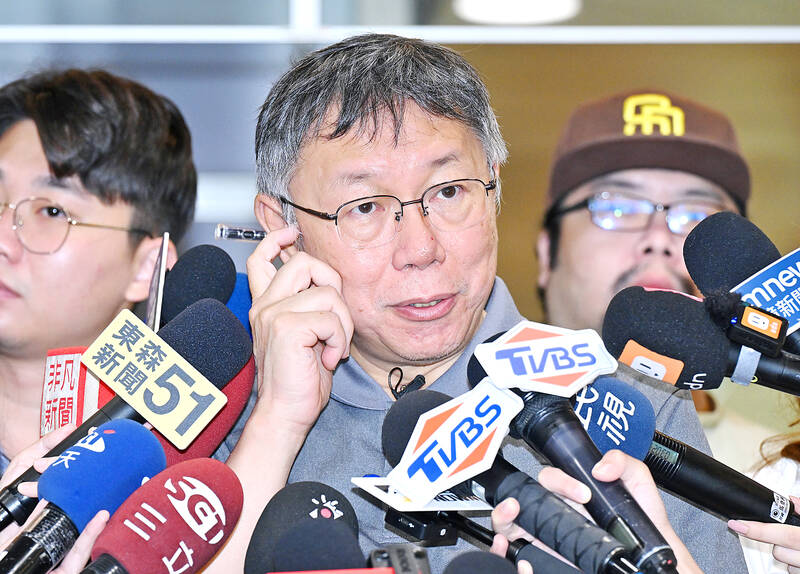
Photo: Liao Chen-hui, Taipei Times
However, though it made the party look bad and they lost one of their star politicians, it was a survivable event for the TPP as they could portray it as a one-off bad apple. Plus, both the Democratic Progressive Party (DPP) and the Chinese Nationalist Party (KMT) have also had a string of politicians embroiled in corruption investigations or convictions, including investigations into the neighboring KMT Hsinchu County commissioner and the former DPP Taoyuan mayor.
BRIEF RECAP OF AUG. 8-12
On TPP Chairman Ko Wen-je’s (柯文哲) birthday on Aug. 8, Grace Woo (吳靜怡), a former employee of Ko who had been expelled from the party in July for regularly criticizing the party in public, got her revenge by dropping bombshell revelations on the TPP’s financial filings from the last presidential campaign. These included missing funds, nepotistic deals with companies close to the party, and billing a for-profit event as a campaign fundraiser, among other problems.
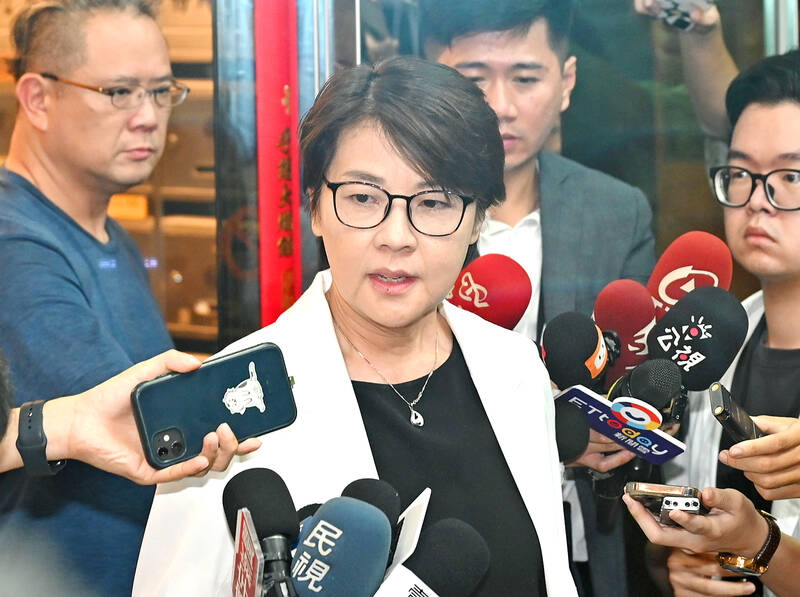
Photo: Wang Yi-Sung, Taipei Times
The next day, Ko’s wife Peggy Chen (陳佩琪), an Internet celebrity in her own right, publicly apologized for registering a company and opening a bank account in her son’s name. She was a director at a public hospital at the time and was classified as a public servant, so she legally couldn’t do it herself.
Depending on the experts consulted by local media, this may or may not have been illegal. Both Chen and Ko changed their stories, with Chen saying that the son did it all on his own and Ko calling it not strange for parents to pay to set up a business for their adult child. Whatever the legality, it played out very negatively in the press, with words like “fraud” being bandied about in headlines.
After scrambling to investigate, the party held a press conference on Aug. 12, hoping to clear up the mess and put the scandal behind them. In it they admitted that they had failed to report or misdeclared 17 expenses from its latest presidential election campaign, totaling more than NT$18 million.
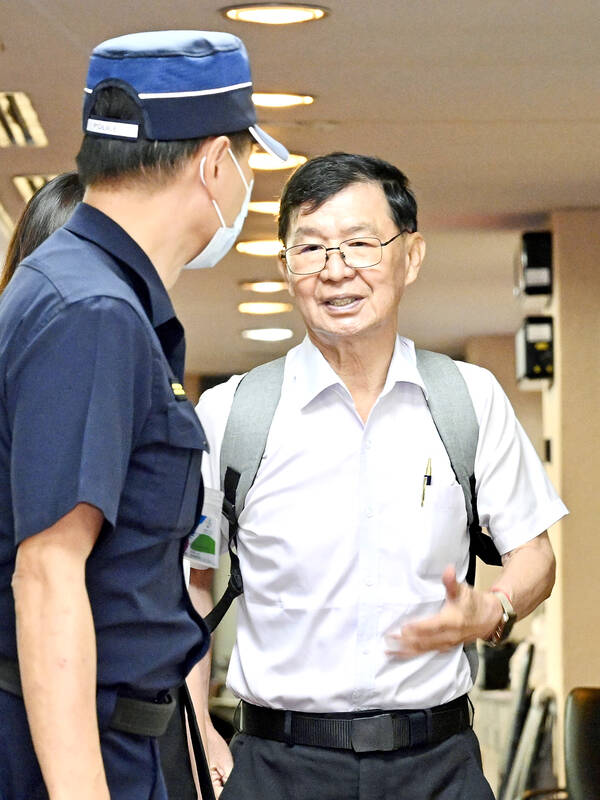
Photo: Lo Pei-de, Taipei Times
The party also claimed that the presidential candidate Ko, campaign manager Vivian Huang (黃珊珊), deputy campaign manager Vicky Chen (陳智菡) and even the campaign chief financial executive and Ko’s high school buddy Lee Wen-tsung (李文宗) were all completely ignorant of everything and put all the blame on Tuanmu Cheng (端木正), an outside accountant hired by the campaign. Tuanmu and the firm he worked for insisted that the campaign filing they made was fully in accordance with the law.
PONG CAUSES A STINK, AUG. 12
On the very same day that the TPP was trying to pass the buck for any responsibility on the financial crisis, Taipei prosecutors summoned former Taipei deputy mayor Pong Cheng-sheng (彭振聲) for questioning, and barred him from leaving the country or changing his residence while their investigation was underway. Pong served under Ko when Ko was Taipei mayor.
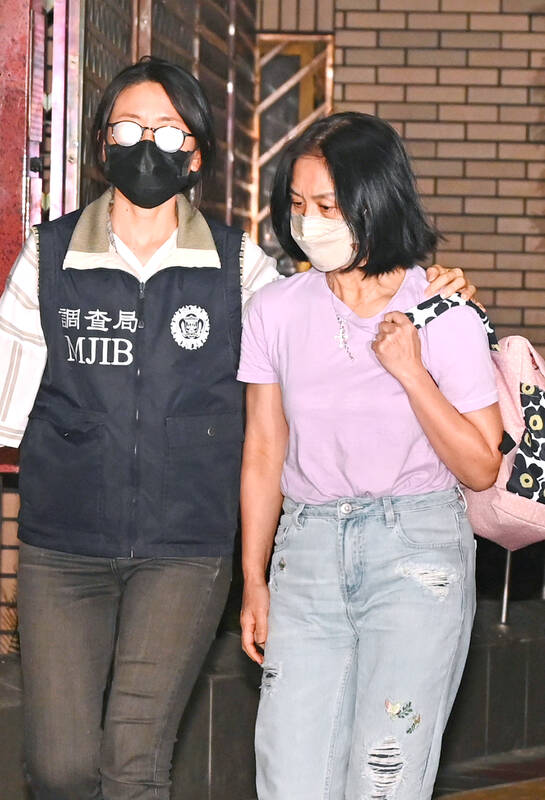
Photo: Wang yi-sung, Taipei Times
The prosecutors said they believed Pong was involved in misusing public power to help line businesses’ pockets in violation of the Anti-Corruption Act (貪污治罪條例) related to Taipei’s Core Pacific City Mall and Beitou Shilin Technology Park redevelopment projects.
Suspicions were raised over the then-city government’s alleged favoritism toward developers during Ko’s tenure as mayor when it allowed Core Pacific City to increase its floor area ratio from 392 percent to 840 percent. Suspicions were also raised about land lease auctions for the T17 and T18 areas in the Beitou Shilin Technology Park, which may have been tampered with to benefit the Shin Kong group. Though as far as I know there is no proof linking these two other ties to Ko, it may be worth noting that Ko’s vice presidential candidate Cynthia Wu (吳欣盈) is from the family that founded the group, worked there as an executive, and is the daughter of Eugene Wu (吳東進), who is currently out on bail and being investigated for alleged embezzlement and fraud in a separate case.
MORE QUESTIONS RAISED, AUG. 13
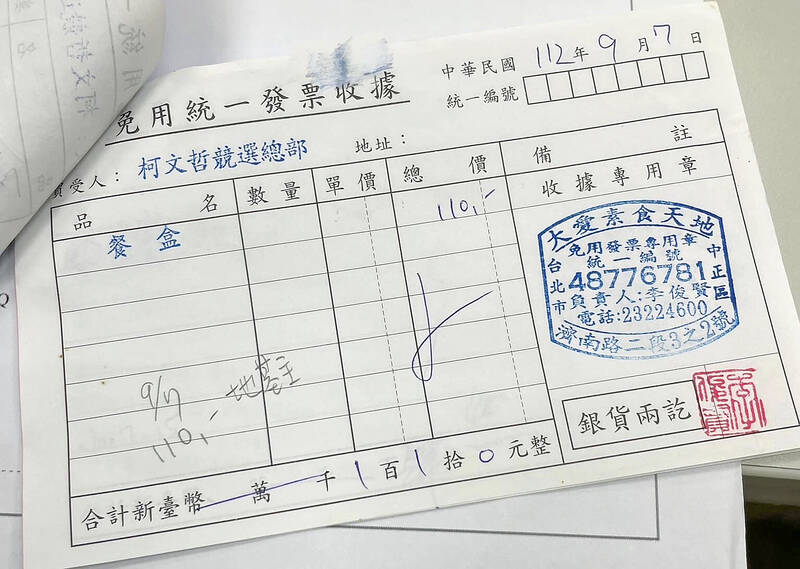
Photo courtesy of Taiwan People’s Party
On Aug. 13, more information came to light and it became abundantly clear that the previous day’s press conference had done nothing to put the TPP’s troubles behind them. The aforementioned Grace Woo, who is a colorful character sporting thick glasses, smart suit jackets and hair that looks like it is in a state of controlled explosion, came out and claimed that there were NT$20 million in the accounts of campaign contributions missing.
Another colorful character who is helping Woo is Liu Yu (劉宇), widely known as 4xCat (四叉貓), whose characteristic look could be described as scruffy and disheveled. He claimed that two previously declared entries of corporate campaign donations were reclassified as anonymous. He suspected the reason was that Ko would “brag” on the campaign trail that he did not take corporate donations.
The Control Yuan announced it was investigating the TPP’s financial filings and stated if they found anything potential criminal they would pass that on to Taipei prosecutors. The Control Yuan legally can only issue a fine of up to NT$1.2 million.
On the evening of Aug. 13, TPP legislative caucus director Vicky Chen bizarrely claimed that the TPP was the “victim” in all of this.
PROSECUTORS LAUNCH NEW INVESTIGATION, AUG. 14
On the morning of Aug. 14, TPP spokesperson Celina Wu (吳怡萱) said that Investigation Bureau agents led by Taipei prosecutors searched Ko’s workplace in the Taiwan Glass Building, but strangely this was contradicted by TPP Deputy Secretary-General Hsu Fu (許甫), who later told reporters that the search had not involved TPP premises or Ko’s office.
Instead, prosecutors were said to have searched the MuKo Public Relations Marketing Limited (木可行銷公關) office, located next door to the TPP offices, was the exclusive peddler of TPP campaign merchandise and whose director, Lee Wen-chuan (李文娟), is the sister of the aforementioned Lee Wen-tsung, Ko’s campaign finance chief. In total, six people were brought in for questioning, including Tuanmu, and seven locations were searched.
With no end in sight to the controversy, Vivian Huang resigned from the party’s Central Standing Committee to take responsibility in her role as campaign manager. However, she resisted calls to resign her legislative seat.
She also went to the prosecutor’s office to ring the bell, which is the local procedure for initiating a lawsuit, against Tuanmu.
Meanwhile prosecutors announced that they had made appointments to meet with 30 people in connection to the Core Pacific corruption case, a list that included the daughter of People First Party chairman James Soong (宋楚瑜).
WAIT, WHAT, NO CAMPAIGN EXPENSES!? AUG. 15
On Aug. 15, Lee Wen-chuan was released on NT$1.5 million bail, Tuanmu on NT$1 million bail, MuKo accountant Ho Ai-ting (何璦廷) on half a million bail and Cheng’s assistant was released without bail. All four were now formally declared suspects.
It also came out that there was a financial entry for NT$960,110 for lunchbox meals. This was explained away as an accidental combination of two separate receipts, one for NT$960 and another for NT$110, and those two receipts were duly produced.
However, there were some potential problems with this story. First, the two receipts were from months apart and one of them had already been declared in a previous reporting period. The receipts were also recorded as being issued on weekends, and according to 4xCat, the restaurant they ordered from isn’t open on weekends.
The same day the Control Yuan released data showing the TPP raised NT$84.3 million (US$2.61 million) in donations and spent no money on campaigning. The TPP said that the party did not calculate total campaign expenditures separately and that such costs were included in the operational spending of the party’s departments.
In Tainan, the local head of the DPP chapter noted that when their party paid for a street to be closed off to hold a rally, it only cost the party NT$180,000. The TPP had recorded paying out NT$4.75 million to one of the event companies under scrutiny by prosecutors. The TPP would later claim that they had just listed it that way, but the listing included a whole range of other expenses related to the rally.
Also on Aug. 15, prosecutors stated they “had not ruled out” bringing in Ko for questioning in the Core Pacific corruption case.
SERIOUS DANGERS CLOSING IN
This column only covered part of Aug. 12 to 15, but the situation was spiraling out of control. Not only was it becoming more ludicrous by the day, on two separate fronts prosecutors made arrests of many people chosen by Ko to work with and were getting quite close to Ko and the TPP itself.
Remarkably, in the days ahead things get even worse. It is a gripping tale of revenge, alleged corruption on multiple fronts, gross mismanagement and shockingly bad decision-making. And it is still playing out.
Donovan’s Deep Dives is a regular column by Courtney Donovan Smith (石東文) who writes in-depth analysis on everything about Taiwan’s political scene and geopolitics. Donovan is also the central Taiwan correspondent at ICRT FM100 Radio News, co-publisher of Compass Magazine, co-founder Taiwan Report (report.tw) and former chair of the Taichung American Chamber of Commerce. Follow him on X: @donovan_smith.

Jacques Poissant’s suffering stopped the day he asked his daughter if it would be “cowardly to ask to be helped to die.” The retired Canadian insurance adviser was 93, and “was wasting away” after a long battle with prostate cancer. “He no longer had any zest for life,” Josee Poissant said. Last year her mother made the same choice at 96 when she realized she would not be getting out of hospital. She died surrounded by her children and their partners listening to the music she loved. “She was at peace. She sang until she went to sleep.” Josee Poissant remembers it as a beautiful

March 2 to March 8 Gunfire rang out along the shore of the frontline island of Lieyu (烈嶼) on a foggy afternoon on March 7, 1987. By the time it was over, about 20 unarmed Vietnamese refugees — men, women, elderly and children — were dead. They were hastily buried, followed by decades of silence. Months later, opposition politicians and journalists tried to uncover what had happened, but conflicting accounts only deepened the confusion. One version suggested that government troops had mistakenly killed their own operatives attempting to return home from Vietnam. The military maintained that the

Before the last section of the round-the-island railway was electrified, one old blue train still chugged back and forth between Pingtung County’s Fangliao (枋寮) and Taitung (台東) stations once a day. It was so slow, was so hot (it had no air conditioning) and covered such a short distance, that the low fare still failed to attract many riders. This relic of the past was finally retired when the South Link Line was fully electrified on Dec. 23, 2020. A wave of nostalgia surrounded the termination of the Ordinary Train service, as these train carriages had been in use for decades

Lori Sepich smoked for years and sometimes skipped taking her blood pressure medicine. But she never thought she’d have a heart attack. The possibility “just wasn’t registering with me,” said the 64-year-old from Memphis, Tennessee, who suffered two of them 13 years apart. She’s far from alone. More than 60 million women in the US live with cardiovascular disease, which includes heart disease as well as stroke, heart failure and atrial fibrillation. And despite the myth that heart attacks mostly strike men, women are vulnerable too. Overall in the US, 1 in 5 women dies of cardiovascular disease each year, 37,000 of them